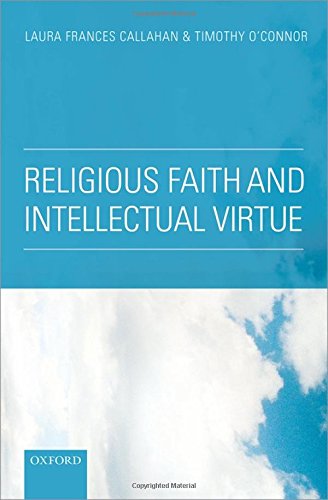Articoli correlati a Religious Faith and Intellectual Virtue

Sinossi
Is religious faith consistent with being an intellectually virtuous thinker?
In seeking to answer this question, one quickly finds others, each of which has been the focus of recent renewed attention by epistemologists: What is it to be an intellectually virtuous thinker? Must all reasonable belief be grounded in public evidence? Under what circumstances is a person rationally justified in believing something on trust, on the testimony of another, or because of the conclusions drawn by an intellectual authority? Can it be reasonable to hold a belief on a topic over which there is significant, entrenched disagreement among informed inquirers, or should such disagreement lead all parties to modify or suspend their own judgments? Is there anything about faith that exempts it from measurement against such epistemic norms? And if we would so evaluate it, how exactly should we understand the intellectual commitments faith requires?
The volume's introduction provides a roadmap of the central issues and controversies as currently discussed by philosophers. In fourteen new essays written to engage nonspecialists as well as philosophers working in religion and epistemology, a diverse and distinguished group of thinkers then consider the place of intellectual virtue in religious faith, exploring one or more of the specific issues noted above.
Le informazioni nella sezione "Riassunto" possono far riferimento a edizioni diverse di questo titolo.
Recensione
This collection of essays gathers together diverse definitions of religious faith and intellectual virtue, as its contributors are both theists and atheists ... the questions this volume raises themselves cause the reader who is also an educator to reflect critically on the cultivation of intellectual virtues (or lack thereof) in his or her own classrooma humbling and fruitful form of self-examination in itself. (International Journal of Christianity & Education)
This collection of new philosophical essays explores the connections among the concepts of religious faith (in most cases, Christian faith), trust, testimony, knowledge, rationality, disagreement and virtue(s). The authors are well-known practitioners of philosophical epistemology or philosophy of religion. Some are highly sympathetic to Christianity and others are in varying degrees critical of religious faith. (Robert C. Roberts, Scottish Journal of Theology)
L'autore
Laura Frances Callahan is a Clarendon Scholar in the Department of Philosophy at Oxford University, formerly a Wells Scholar at Indiana University. Her primary interests are in epistemology. Timothy O'Connor is Professor of Philosophy at Indiana University. He is the author of Persons and Causes (Oxford 2000) and Theism and Ultimate Explanation (Blackwell 2008) and the editor of five other volumes in the philosophy of mind and action and metaphysics.
Le informazioni nella sezione "Su questo libro" possono far riferimento a edizioni diverse di questo titolo.
- EditoreOUP Oxford
- Data di pubblicazione2014
- ISBN 10 0199672156
- ISBN 13 9780199672158
- RilegaturaCopertina rigida
- Numero di pagine346
- RedattoreCallahan Laura Frances, O'Connor Timothy
Compra usato
Condizioni: come nuovoUnread book in perfect condition... Scopri di più su questo articolo
Spese di spedizione:
EUR 2,43
In U.S.A.
Compra nuovo
Scopri di più su questo articolo
Spese di spedizione:
EUR 11,13
Da: Italia a: U.S.A.
I migliori risultati di ricerca su AbeBooks
Religious Faith and Intellectual Virtue
Da: GreatBookPrices, Columbia, MD, U.S.A.
Condizione: As New. Unread book in perfect condition. Codice articolo 20716330
Quantità: 5 disponibili
Religious Faith and Intellectual Virtue [Hardcover] Callahan, Laura Frances and O'Connor, Timothy (eng)
Print on DemandDa: Brook Bookstore On Demand, Napoli, NA, Italia
Condizione: new. Questo è un articolo print on demand. Codice articolo 7f3b614f0fd3a4e621d453184af367e4
Quantità: Più di 20 disponibili
Religious Faith and Intellectual Virtue
Da: GreatBookPrices, Columbia, MD, U.S.A.
Condizione: New. Codice articolo 20716330-n
Quantità: 5 disponibili
Religious Faith and Intellectual Virtue
Da: THE SAINT BOOKSTORE, Southport, Regno Unito
Hardback. Condizione: New. New copy - Usually dispatched within 4 working days. Codice articolo B9780199672158
Quantità: 15 disponibili
Religious Faith and Intellectual Virtue
Da: Iridium_Books, DH, SE, Spagna
Hardcover. Condizione: Good. 0199672156. Codice articolo 9780199672158
Quantità: 1 disponibili
Religious Faith and Intellectual Virtue (Hardback)
Da: Iridium_Books, DH, SE, Spagna
Hardback. Condizione: Muy Bueno / Very Good. Codice articolo 100000000628980
Quantità: 1 disponibili
